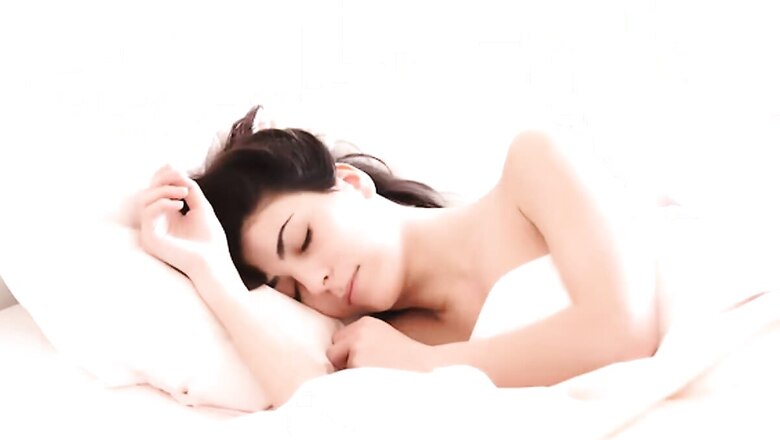
views
Good sleep is the cornerstone of good health. It is suggested that an adult should get between seven to nine hours of uninterrupted sleep. When one thinks about “when” to sleep, it is universally accepted that “early to bed and early to rise” is the best approach to setting one’s sleep schedule. Now a study from the UK seems to have confirmed all these common beliefs about sleep. The study, published in the peer-reviewed journal Psychiatry Research, concludes that going to bed by 1 am can lower the risk of having mental and behavioural disorders such as anxiety and depression.
The research was based on studying the sleep patterns of nearly 74,000 UK adults. The researchers compared the participant’s preferred sleep timing, known as chronotype, with their actual sleep habits
The study found that sticking to one’s chronotype did not factor in how sleep affects one’s mental health. It was earlier believed that adherence to one’s chronotype has positive sleep-related effects. Ultimately, it’s the sleep time and quality that is important. Jamie Zeitzer, a professor of psychiatry and behavioural sciences at Stanford University, who was part of the research said in a statement, “We found that alignment with your chronotype is not crucial here, and that really it’s being up late that is not good for your mental health.”
The findings showed that those who identified as night owls, meaning going to bed after 1 am, were 20% to 40% more likely to receive a mental health disorder diagnosis compared to those who sleep early or have “intermediate sleep schedules.” Those who rose early with the sun showed the best mental health outcomes.
In a conversation with Medical News Today, Jamie Zeitzer theorised why waking up early may be linked with better mental health and said, “We think that it has to do with people being isolated when awake late at night, so they lack the guard rails and support that come with socialization or even knowing that someone else is awake.”
Dr Indira Gurubhagavatula, a professor of medicine at the University of Pennsylvania, who is not affiliated with the above-mentioned study pointed to some limitations of the study. She noted that most of the 74,000 participants were white and middle-aged, which means the sample pool was not diverse.
She also added that the participants described their chronotype with a single question, whereas typically a more thorough questionnaire is used to deduce chronotype. She told the HuffPost, “Typically how we assess morningness or eveningness is with a much more thorough questionnaire that has a lot more detailed questions.”


















Comments
0 comment